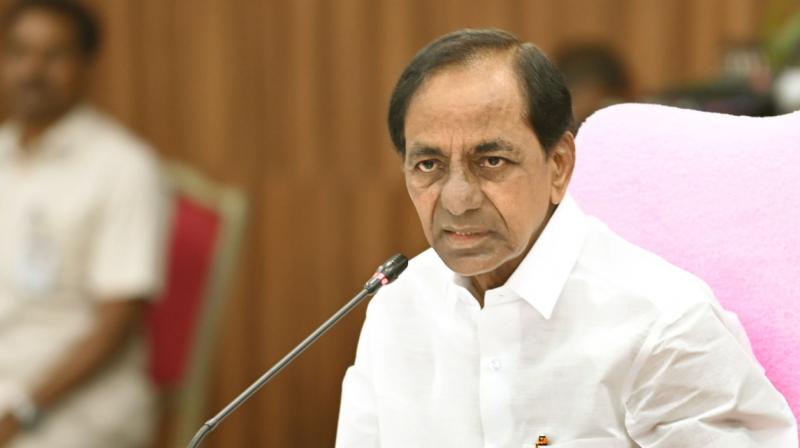After SC verdict boost, KCR leaves on Bharat Yatra today
Party sources say CM was upbeat over the ruling and was likely to seek support of CMs of non-BJP states to approach the court against Centre

Hyderabad: The Supreme Court ruling on GST and 'cooperative federalism' on Thursday has come as a shot in the arm for TRS supremo and Chief Minister K. Chandrashekar Rao who has been critical of the BJP government at the Centre for “snatching the powers of states” and taking “unilateral decisions against the spirit of the Constitution.”
Party sources said the CM was upbeat over the ruling and was likely to discuss it with CMs of non-BJP states and seek their support to approach the court against the Centre and safeguard the rights of the states.
The CM has been highlighting that the Centre was “killing the spirit” of cooperative federalism by taking unilateral decisions on power, agriculture and irrigation sectors, among others, and bypassing the state governments' powers on several subjects by stating that they figured under the 'Concurrent List' of the Constitution.
Apart from Rao, the CMs of West Bengal, Tamil Nadu, Maharashtra and Jharkhand have accused the Centre of acting against the Constitution's spirit of cooperative federalism.
Rao had written several letters to Prime Minister Narendra Modi in the last few months, expressing anguish over the Centre forcing state governments to implement power sector reforms and linking it to loans and attempting to amend IAS cadre rules of 1954 which forced states to relieve IAS officers on the urgent orders of the Centre.
The CM had expressed anger at the Centre releasing funds directly to gram panchayats to implement NREGA and other Central schemes, bypassing state governments and sending a message of lack of trust. The CM was also upset at the Centre for proceeding with the proposal to interlink rivers without addressing the concerns of states, sources said.
The TS government along with a few other states had strongly opposed the increase in GST on textiles from five to 12 per cent. This forced the Centre to defer the hike decision in January.
Sources said the CM was of the strong view that the Centre should handle only national security and financial security issues and leave the rest to the states. He was against the Centre “interfering” in education, health, agriculture and other sectors, arguing that each state had its own needs and conditions which only the local governments would be aware of.
The Centre cannot implement its schemes effectively if it bypassed state governments, the CM believes. The Centre had halted the auction of bonds by the government to raise loans for 2022-23 by insisting on treating bank guarantees given by it in the two previous financial years as part of the borrowing limit. This reduces the amount of money the government can raise via bonds.

